‘It Was Great to Look at Scientific Achievements through the Eyes of a Journalist, not a Scientist’
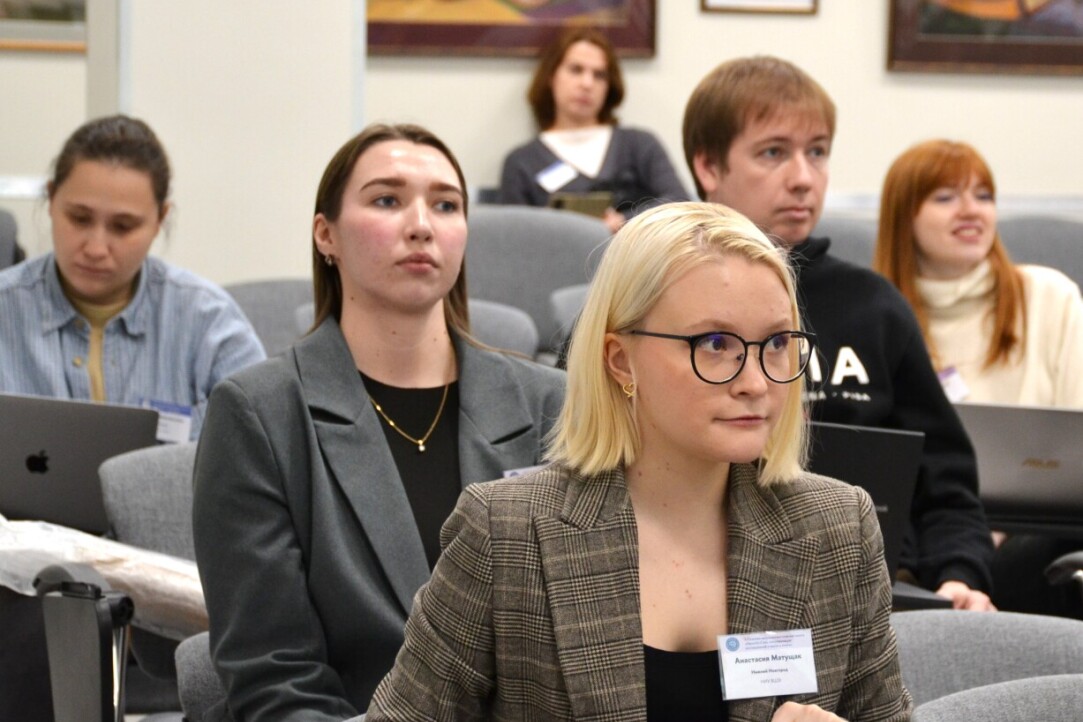
HSE University in Nizhny recently hosted the 2nd Autumn Neuro-linguistic School ‘NeuroSciCom: Popularising Language and Brain Studies’ for scientists and students at the HSE Centre for Language and Brain Studies in Nizhny Novgorod. The school was held as part of the 'Human Brain Resilience: Neurocognitive Technologies for Adaptation, Learning, Development and Rehabilitation in a Changing Environment' Strategic Project of the Priority 2030 programme.
At the school’s opening ceremony, Igor Sokolov, the project coordinator, stressed that the project aims to create a centre for assistive technologies and augmented intelligence, and is the first unified infrastructure in Russia for research in the field of neurocognitive studies, as well as for generating, promoting and commercialising ideas in the field of neurocognitive technologies and research.

Strategic projects focus not merely on fundamental developments, but are more concerned with the creation of digital tools and products. For example, the goal of the HSE Centre for Language and Brain Studies in Nizhny Novgorod is to develop an application that helps to automatically diagnose symptoms of various psychiatric and neurological disorders, such as depression or schizophrenia. It is important for scientists who are engaged in the development of such products to convey the results of their activity to the wider public.
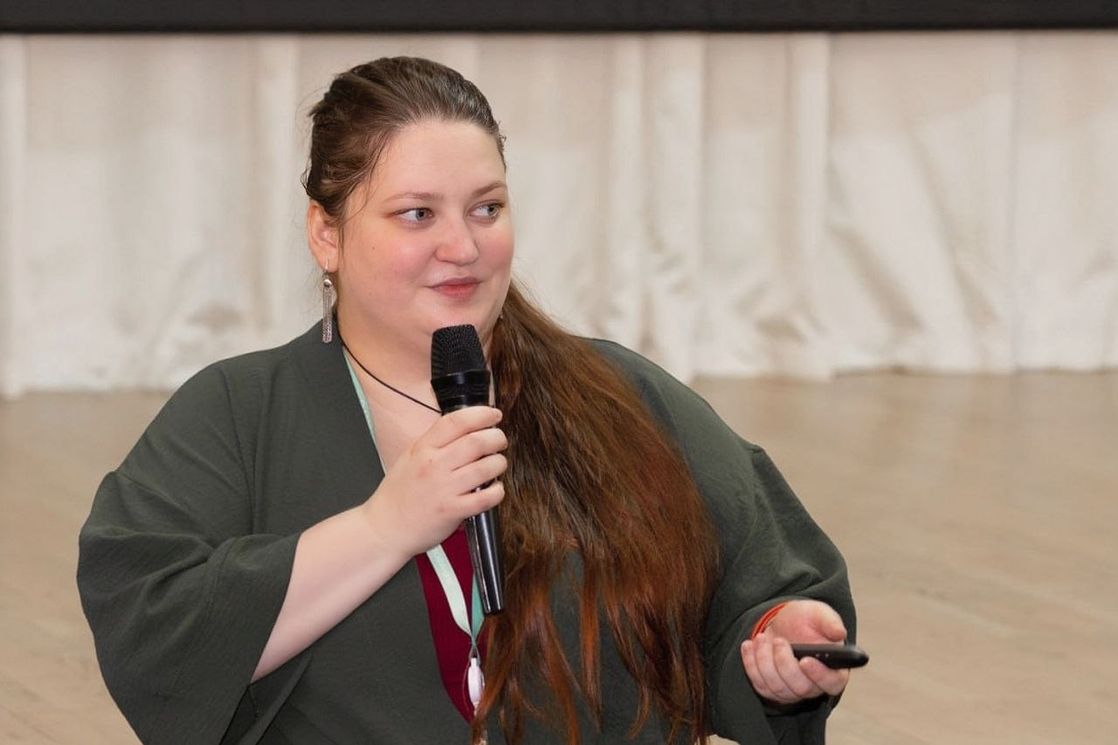
‘We have launched and organised a school that will be able to offer solutions to the very specific problem of communication between scientists and the general public, helping introduce various ways of popularising research, development and communication with a wider audience,’ explained Mariya Khudyakova, director of the Centre for Language and Brain Studies at the Faculty of Humanities (Nizhny Novgorod)
The school programme gives young scientists an opportunity to look at their research from the media’s point of view. Therefore, HSE University scientific communicators, as well as journalists and popularisers of science were invited as speakers: Grigory Tarasevich, founder and editor-in-chief of the popular scientific journal ‘Schrödinger's Cat’ and Daniil Kuznetsov, chief editor of the HSE science and education media brand IQ.HSE.
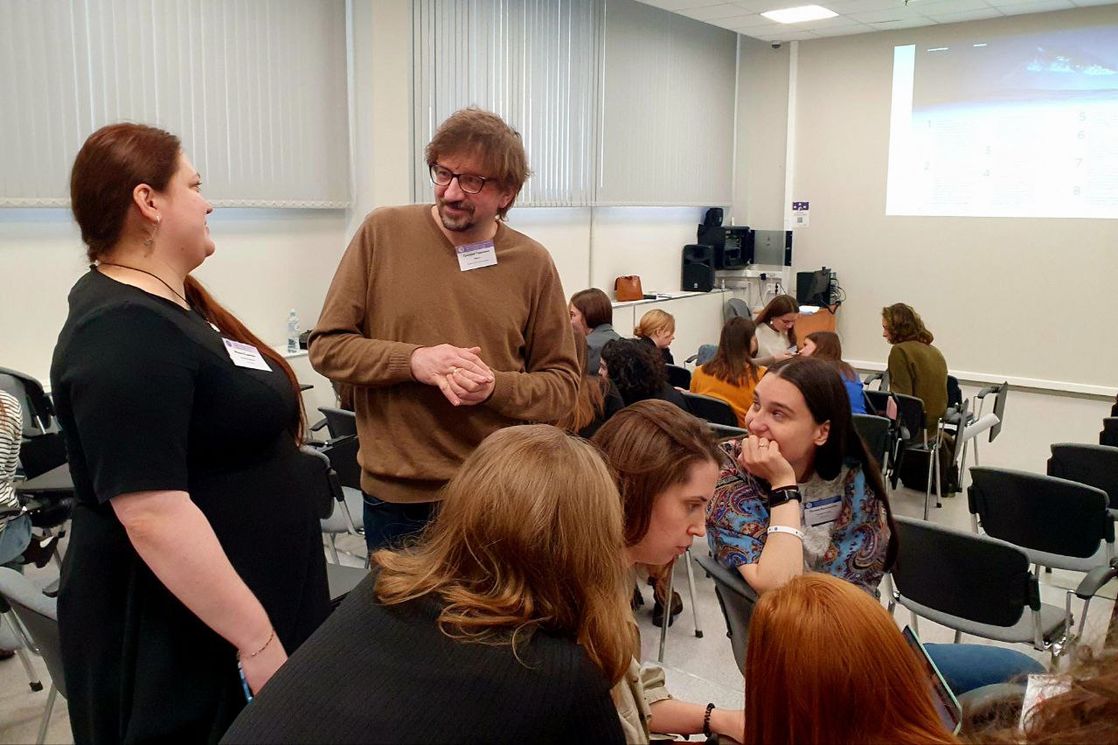
The school participants also practiced creating popular science texts on the topic of their research. The results of this work were presented by young researchers on the second day of the school during the master class 'How to speak about research in the field of neuroscience’.
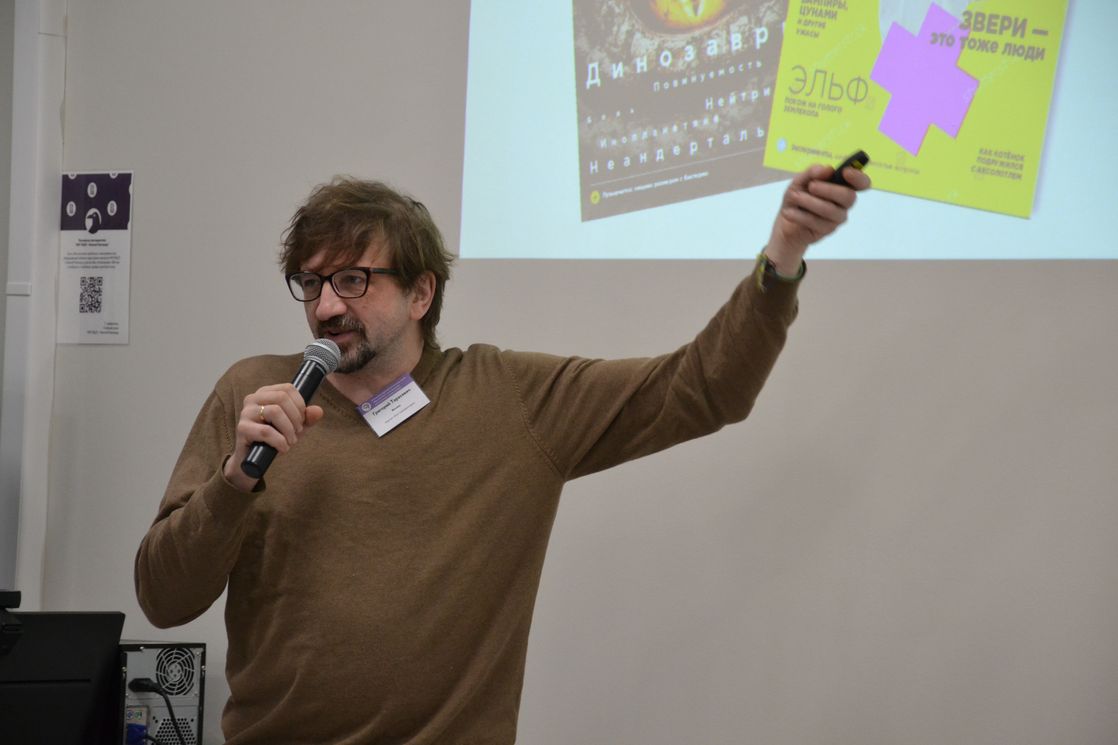
‘The audience for the neuro-school turned out to be absolutely wonderful - smart, and most importantly, motivated people. We discussed future projects, for example, articles in the ‘Schrödinger's Cat’ scientific journal and the neuro-linguistics workshop at the ‘Summer School’ (the summer school of the ‘Russian Reporter’). We also discussed how to popularise neuro-linguistics among high school students, for example, through involvement in scientific volunteering project. I believe that this school will help to popularise neuro-linguistics in Russia because, currently, it is much less appreciated than, let’s say, popular astrophysics or anthropology.’
During the lecture ‘Scientific news as the main tool for promoting research: features, structure, and the basic rules of writing’ by Daniil Kuznetsov, participants learned how and when it is best to start interacting with scientific communicators and brand media editors at their university so that their research can be effectively covered in the media. In addition, the students learnt how their large, detailed scientific article can be turned into a short news article, as well as why creative and catching headlines are vital.
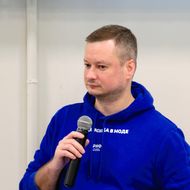
Daniil Kuznetsov
It was very important to me that our young scientists could put themselves in the place of journalists, walk in their shoes and look at the scientific process and the functioning of the media through their eyes. In most cases, this kind of experience removes various blocks and prejudices when working with the media in the future. Researchers understand why media specialists do certain things, which means they can help them create fascinating, but at the same time factually correct articles. The small exercise I proposed — to read a scientific paper from an unfamiliar field in half an hour and create a short piece about the research based on it — turned out to be a difficult task, but it allowed me to fully get into the daily routine work of a scientific journalist.
Grigory Tarasevich, Daniil Kuznetsov and researchers of the HSE Centre for Language and Brain Studies Nina Zdorova and Alina Minnigulova participated in the round table ‘Experiences of interaction between scientists and the media’. As a result of the discussion, most of the participants agreed that scientists and journalists need intermediaries – scientific communicators.
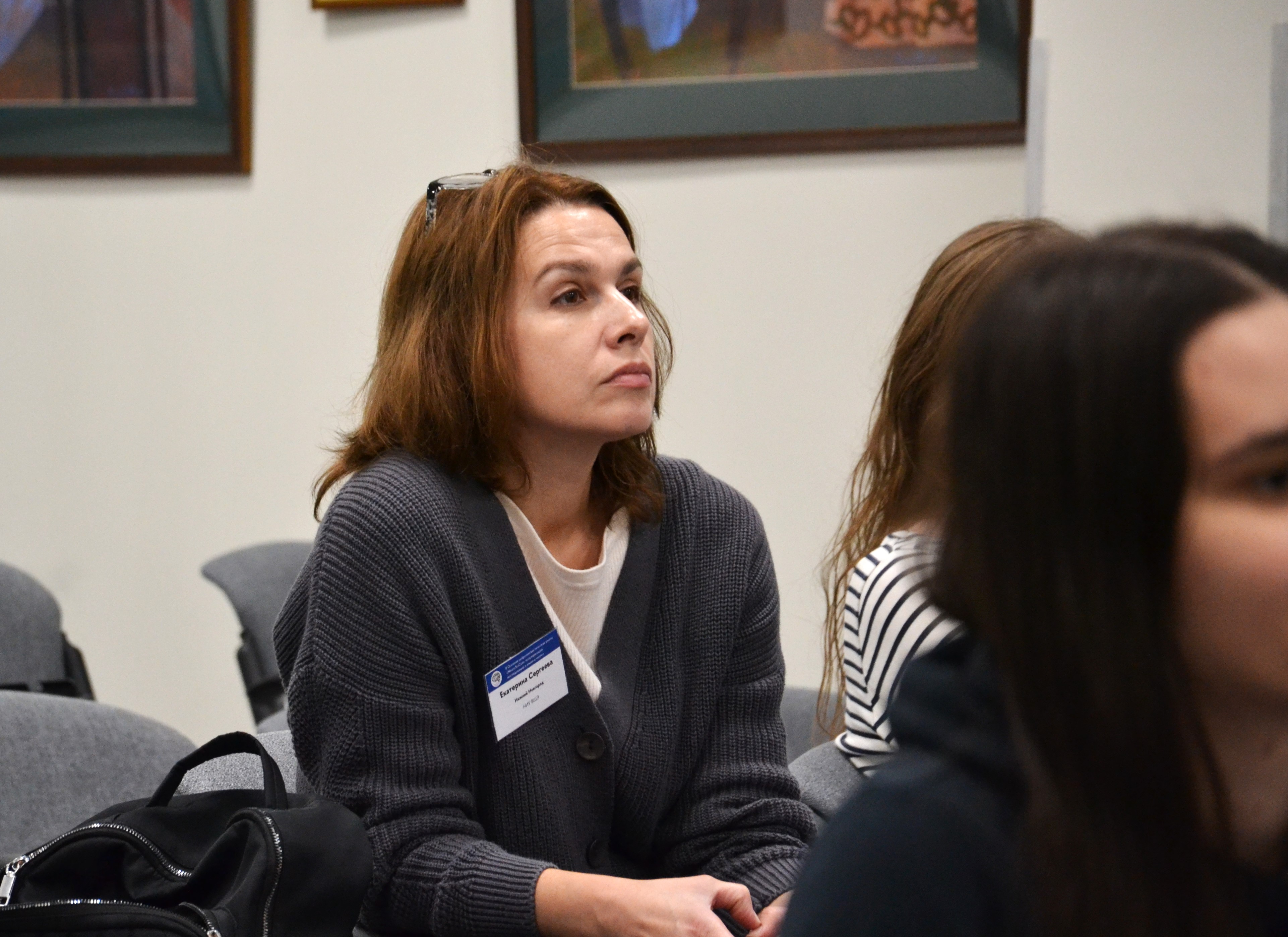
‘The open discussion aroused a lot of emotions,’ says Ekaterina Sergeeva, Advisor to the Director of the HSE University in Nizhny Novgorod. ‘Such events can make a great impression on the participants and allow young scientists to look at their research from a different angle.’ She supported Grigory Tarasevich's assumption that modern scientists need to discuss their scientific achievements with schoolchildren, explaining everything in the most accessible language. She adds that widespread use of such ‘scientific volunteering’ will raise the average level of education, which will positively affect the competence of scientific journalists and prepare young people for a conscious choice of science as their life's work.
A poster session presenting the results of 15 studies in the field of psycho- and neuro-linguistics was held during the school. The use of special video oculographic glasses that allow you to record eye movements when viewing the poster was an interactive part of the session’s programme.

Nina Zdorova
We recorded how people from three different professional fields viewed the posters: a linguist, a programmer, and a journalist. We then analysed the data and presented the results in the report ‘Eye movement in the evaluation of a scientific poster’. Of course, it was a pseudo-experiment, since there was only one person in the sample and one poster as the material. However, potentially it can be developed, and we plan to conduct a study on how viewers focus their attention when watching TV series with and without subtitles.
Kapitolina Untila, research assistant at the HSE Centre for Language and Brain Studies, agreed that it was useful to look at scientific achievements through the eyes of a journalist, not a scientist, because these are two completely different approaches. ‘During the School, we constantly returned to a lively discussion about the share of science in pop science and how to present it correctly. Before that, I had never thought about how difficult it was to maintain a balance between scientific accuracy and media attractiveness. In general, I had a lot of impressions, a lot of food for thought,’ she said.
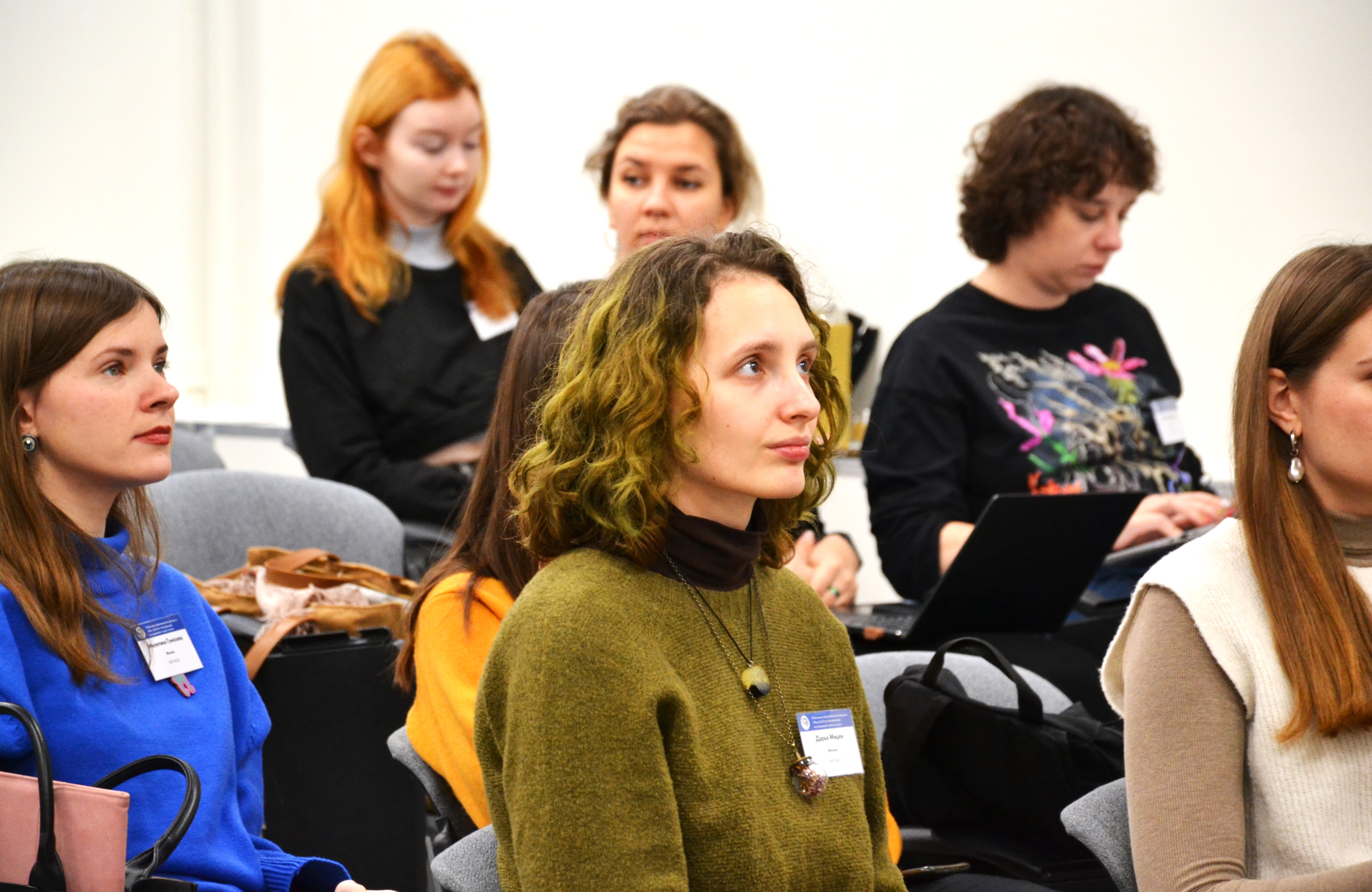
During the school a screening of the film about the future through the eyes of HSE scientists 2052: See the Future took place. Liudmila Mezentseva, Head of the HSE Science Communication and Outreach Office, presented it to the participants. This film triumphed in the main Russian competition of scientific journalists, communicators and popularisers — the 9th all-Russia prize 'For Loyalty to Science' of the Ministry of Science and Higher Education of the Russian Federation, winning the 'Special Prize for the Popularisation of Russian Science' category. The film features 15 HSE experts who share their forecasts about changes in the economy and society, talking about foresight and scientific forecasting, research in neuroscience, the use of artificial intelligence, and the widespread introduction of digital technologies, including in the humanities and law.
See also:
‘Scientists Work to Make This World a Better Place’
Federico Gallo is a Research Fellow at the Centre for Cognition and Decision Making of the HSE Institute for Cognitive Research. In 2023, he won the Award for Special Achievements in Career and Public Life Among Foreign Alumni of HSE University. In this interview, Federico discusses how he entered science and why he chose to stay, and shares a secret to effective protection against cognitive decline in old age.
HSE Scientists Propose Using Heart Rate Analysis to Diagnose Anxiety and Depression
A group of scientists at HSE University have discovered how anxiety and depression can be diagnosed by analysing heart rate. It turns out that under mental stress, the heart rate of individuals with a predisposition to mental health disorders differs from that of healthy individuals, especially when performing more complex tasks. These changes in cardiovascular parameters can even be detected using a pulse oximeter or a smartwatch. The study findings have been published in Frontiers in Psychiatry.
'Science Is Akin to Creativity, as It Requires Constantly Generating Ideas'
Olga Buivolova investigates post-stroke language impairments and aims to ensure that scientific breakthroughs reach those who need them. In this interview with the HSE Young Scientists project, she spoke about the unique Russian Aphasia Test and helping people with aphasia, and about her place of power in Skhodnensky district.
Narcissistic and Workaholic Leaders Guide Young Firms to Success
Scientists at HSE University—St. Petersburg studied how the founder's personal characteristics impact a young firm's performance. It turns out that a narcissist and workaholic who also fosters innovation will effectively grow their company. The paper has been published in IEEE Transactions on Engineering Management.
Neuroscientists from HSE University Learn to Predict Human Behaviour by Their Facial Expressions
Researchers at the Institute for Cognitive Neuroscience at HSE University are using automatic emotion recognition technologies to study charitable behaviour. In an experiment, scientists presented 45 participants with photographs of dogs in need and invited them to make donations to support these animals. Emotional reactions to the images were determined through facial activity using the FaceReader program. It turned out that the stronger the participants felt sadness and anger, the more money they were willing to donate to charity funds, regardless of their personal financial well-being. The study was published in the journal Heliyon.
Spelling Sensitivity in Russian Speakers Develops by Early Adolescence
Scientists at the RAS Institute of Higher Nervous Activity and Neurophysiology and HSE University have uncovered how the foundations of literacy develop in the brain. To achieve this, they compared error recognition processes across three age groups: children aged 8 to 10, early adolescents aged 11 to 14, and adults. The experiment revealed that a child's sensitivity to spelling errors first emerges in primary school and continues to develop well into the teenage years, at least until age 14. Before that age, children are less adept at recognising misspelled words compared to older teenagers and adults. The study findings have beenpublished in Scientific Reports .
Meditation Can Cause Increased Tension in the Body
Researchers at the HSE Centre for Bioelectric Interfaces have studied how physiological parameters change in individuals who start practicing meditation. It turns out that when novices learn meditation, they do not experience relaxation but tend towards increased physical tension instead. This may be the reason why many beginners give up on practicing meditation. The study findings have been published in Scientific Reports.
Exploring Research Prospects and Collaboration Opportunities: Discussion of Strategic Projects Held at HSE University
On June 26 and 27, HSE University at Pokrovka hosted a discussion of potential partnerships between the university's research teams and strategic projects under the Priority 2030 programme. During the two-day session, the heads of strategic projects presented the main areas of their ongoing research, highlighted some of the key results achieved, and shared their vision for involving new researchers in the projects.
Processing Temporal Information Requires Brain Activation
HSE scientists used magnetoencephalography and magnetic resonance imaging to study how people store and process temporal and spatial information in their working memory. The experiment has demonstrated that dealing with temporal information is more challenging for the brain than handling spatial information. The brain expends more resources when processing temporal data and needs to employ additional coding using 'spatial' cues. The paper has been published in the Journal of Cognitive Neuroscience.
Keep Your Eyes On: A Prospective Device for Self-Monitoring Vision
As part of the Strategic Project 'Success and Self-Sustainability of the Individual in a Changing World,' scientists at HSE University have conducted a study to develop an electronic device designed to reduce the risk of occurrence and progression of eye diseases.


